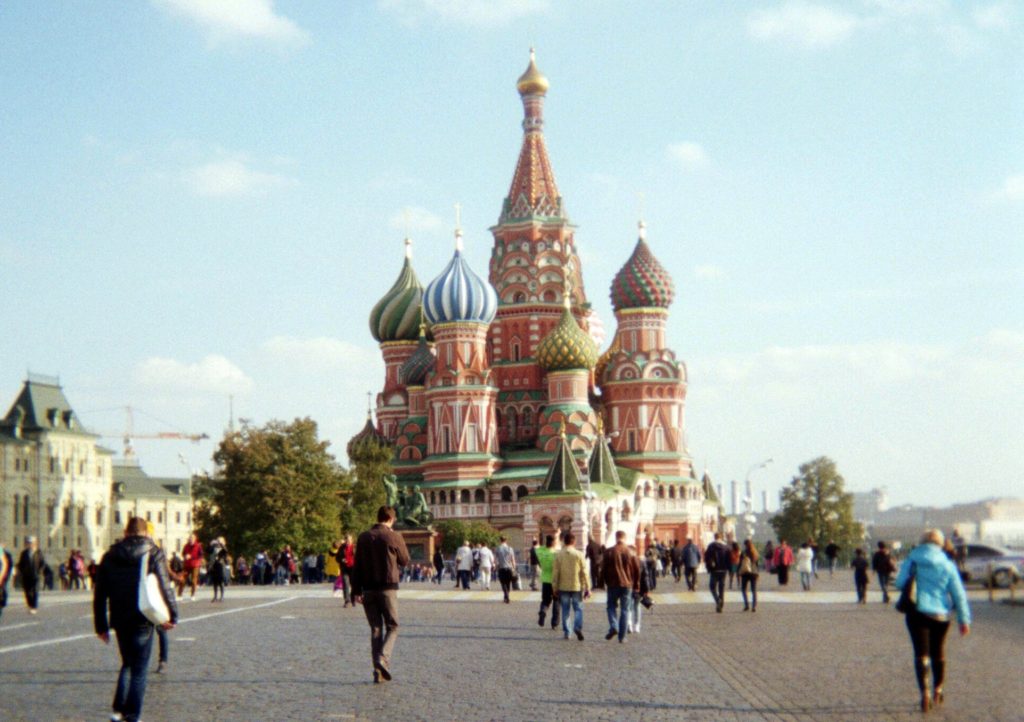All posts by natyliesb
Feedback from my Contacts in Russia

I thought I’d give readers some insight on what I’m hearing from a few contacts in Russia about sentiment regarding the war and the sanctions. My contacts are in western Russia, southern Russia and Siberia.
According to their collective observations, though there are disagreements among some, there is general support for Putin so far in his “special military operation,” but it is tinged with sadness. It’s not a chest-thumping kind of support. While they understand the threat of NATO expansion and the Neo-Nazi elements of the Ukrainian government and militias, they also don’t want to see regular Ukrainians get hurt. It is a neighboring country and many Russians have family or other ties to Ukraine. As one contact told me:
“But the worst thing that worries everyone is that people are being killed on both sides. People are dying, and it’s terrible.”
With regard to the sanctions, thousands of people who worked for western companies or relied on western clients for their income have been hurt. However, there is currently no shortage of food or other essential items and no panic. But prices for food have gone up, along with imported goods. Among many, there is a sense that only the top 20% of Russians will be significantly affected – those who travel overseas, have assets abroad, and buy imported luxury items.
Here is what one contact told me:
“The fact that large companies like McDonald’s, Starbucks and foreign retailers like IKEA have left the Russian market is not considered by Russians as something terrible. We have such a saying – a holy place will never be empty. Russian companies will take their place sooner or later. The bad thing is that all social networks are closed – Instagram and Facebook are recognized in Russia as extremist organizations due to the fact that they allow and provoke their subscribers to publish appeals to kill Russians. Nowadays they are more and more resembling a garbage dump. Sure, that means that we will be isolated from the whole world, which is bad. Besides air travelling abroad is closed.”
Another contact said:
“As for the sanctions, things are calm, everyone is making the adjustments necessary. Of significance, at this point, they are mostly technical, moving to Telegram, using Mir cards instead of GooglePay, getting off Facebook because of Meta deciding to adjust their moderator criteria.. Helpful information is rapidly exchanged such as getting a Chinese Union Pay card that is accepted in 171 countries. Three weeks in and costs are going up but shelves are full. This is nothing like what happened in the 90s, this is a different country.”
One contact, however, suggested that some Russians fear that the sanctions could eventually have devastating consequences, and that this provided both crisis and opportunity.
The majority of my contacts also expressed concern at the extreme xenophobia being encouraged against Russians in the West. One contact commented about the rhetoric on western media and social media:
“Dehumanization of adversary is known to be a prelude to military actions. It is one of the telling signs of the coming hot scenario.”
Another observed how she felt the west was making things worse with its actions and rhetoric:
“By the way, visas to America have already stopped being issued more than 2 years ago, long before the war in Ukraine started. It was vivid that Russophobia began [in the U.S.] very long before these events. We came to the USA at [a peace activist’s] invitation in 2018 and even then the degree of hatred for Russians was off the scale, so it was clear at least to me how it would all end….Everyone realizes that it is necessary to stop the war ASAP, instead of inciting or provoking it which is happening now. Just watch your Mass Media to find the proof to my words.”
FT: Ukraine and Russia draw up neutrality plan to end war

The sides are reportedly still far apart on the status of Crimea and the DPR/LPR.
by Max Seddon, Roman Olearchyk, Arash Massoudi, Financial Times, 3/16/22
Ukraine and Russia have made significant progress on a tentative 15-point peace plan including a ceasefire and Russian withdrawal if Kyiv declares neutrality and accepts limits on its armed forces, according to three people involved in the talks.
The proposed deal, which Ukrainian and Russian negotiators discussed in full for the first time on Monday, would involve Kyiv renouncing its ambitions to join Nato and promising not to host foreign military bases or weaponry in exchange for protection from allies such as the US, UK and Turkey, the people said.
Read full article here.
The Grayzone Interviews Col. Douglas McGregor on Russia-Ukraine War
Saagar Enjeti: MSNBC Liberals Say Putin is Worse Than Hitler
I’m convinced that if we end up in WWIII, it will be because of the recklessness of our media. I know parts of the Russian media can be crazy, too, but I wonder if any mainstream Russian TV news show ever suggested that a warring U.S. president was comparable to or worse than Hitler. Any of my followers in Russia or who are familiar with Russian media can let me know.- Natylie